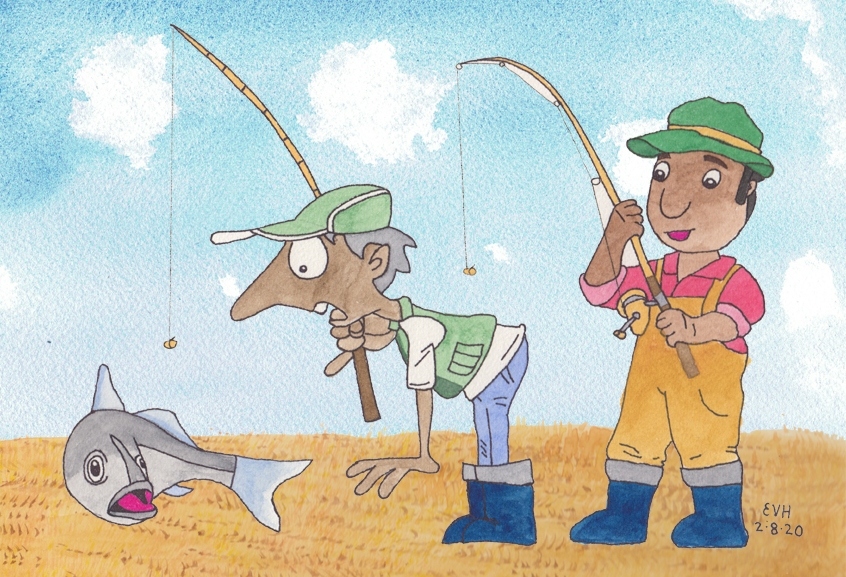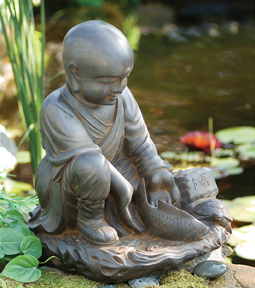
Jataka 216
Maccha Jātaka
The Fish Story
as told by Eric Van Horn
originally translated by William Henry Denham Rouse, Cambridge University
originally edited by Professor Edward Byles Cowell, Cambridge University
The story-in-the-present here does not make any sense, but I have chosen to leave it as-is. It says that the fish’s mate caused him some problem, but the actual Jātaka only says that the fish’s lamenting for his wife was the cause of him being set free. I think the more important lesson here is the compassion of the Bodhisatta who convinces the fishermen to let him go.
Although it has come under criticism recently for possible damage to eco-systems, in Chinese Buddhism there is a tradition called “Fang Sheng” in which fish and tortoises are released into temple ponds out of compassion.
“’Tis is not the fire.” The Master told this story during a stay at Jetavana. It is about a monk who lusted after his late wife. The Master asked this monk, “Is it true, brother, what I hear, that you are lovesick?”
“Yes, sir.”
“For whom?”
“For my late wife.”
Then the Master said to him, “This wife, brother, has been the cause of great mischief to you. Long ago by her actions you came near to being spitted and roasted for food, but wise men saved your life.” Then he told this story of the past.
Once upon a time, when Brahmadatta was the King of Benares, the Bodhisatta was his chaplain. Some fishermen took a fish that they had caught in their net and threw it down on hot sand, saying, “We will cook it in the embers and eat.” So they sharpened a spit and prepared to cook it.
But the fish started to cry over his mate and said these two verses:
“’Tis not the fire that burns me, nor the spit that hurts me sore,
But the thought my mate may call me a faithless paramour.
“’Tis the flame of love that burns me, and fills my heart with pain,
Not death is the due of loving, Oh fishers, free me again!”

Figure: The Fish Pleads His Case
At that moment the Bodhisatta approached the river bank, and hearing the fish’s lament, he went up to the fishermen and made them set the fish free.
This discourse ended, the Master taught the Four Noble Truths, at the conclusion of which the lovesick monk attained stream-entry. Then he identified the birth: “The wife was in those days the fish’s mate, the lovesick monk was the fish, and I was the chaplain.”

Figure: Fang Sheng Garden Statue
